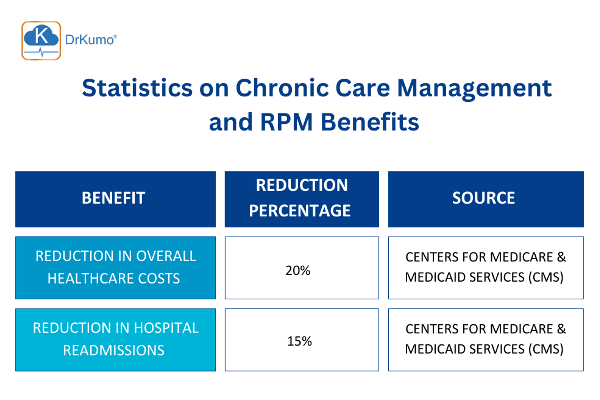Chronic care management (CCM) programs are pivotal in enhancing patient outcomes and quality of life. According to a study by the Centers for Medicare & Medicaid Services (CMS), healthcare providers who implement CCM see a significant reduction in hospital admissions by up to 28% and emergency room visits by 25%. These initiatives streamline healthcare delivery through structured care plans and proactive monitoring, supported by CCM software and adherence to chronic care management CPT codes. This approach not only improves patient care but also reduces healthcare costs by focusing on preventive care and optimized treatment protocols.
Enhancing Patient Care
- Structured Care Plans: CCM programs provide personalized disease management plans tailored to individual patient needs, ensuring consistent and effective treatment protocols.
- Proactive Monitoring: Utilizing chronic care management software allows healthcare providers to monitor patients remotely, facilitating early intervention and minimizing health complications.
- Improved Patient Engagement: By promoting patient management and adherence to treatment guidelines, CCM programs empower patients to take an active role in their health management.
Benefits of Chronic Care Management
- Healthcare Efficiency: CCM reduces hospitalizations and emergency visits by implementing proactive chronic condition protocols and health protocols.
- Cost Savings: Effective chronic disease care management leads to reduced healthcare costs through preventive measures, condition management, and optimized treatment strategies.
- Quality of Life: Patients experience improved health outcomes and enhanced quality of life with regular monitoring, protocol compliance, and personalized treatment plans.
Implementing chronic care management (CCM) programs not only improves patient care but also strengthens healthcare systems by promoting efficient disease management and reducing overall healthcare expenditures. According to a study by the Centers for Medicare & Medicaid Services (CMS), CCM programs can reduce overall healthcare costs by 20% and hospital readmissions by 15%. Furthermore, remote patient monitoring (RPM) can enhance CCM strategies by continuously tracking patients’ health data, leading to better medication adherence and early detection of potential health issues.
The table illustrates the significant impact of CCM programs and RPM on reducing healthcare costs and hospital readmissions. These findings highlight the importance of CCM and RPM in promoting efficient disease management and improving patient outcomes.

For more insights into chronic care management and remote patient monitoring, explore our resources on remote patient monitoring by going to DrKumo.com. Take proactive steps towards optimizing patient care and enhancing healthcare delivery.








